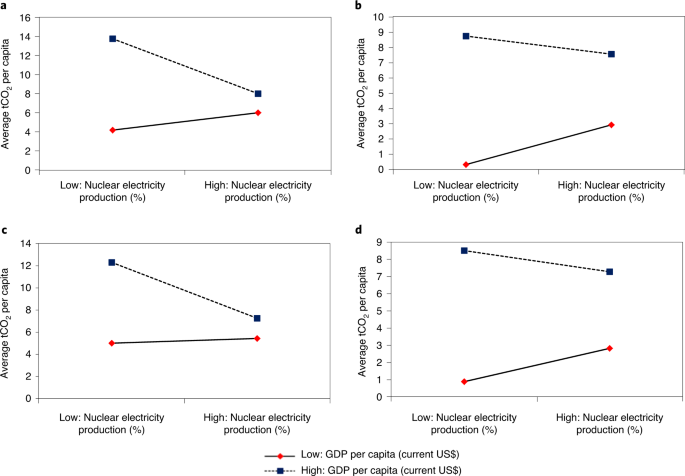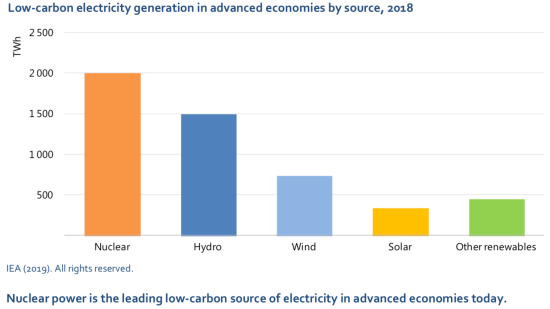Two of the most widely emphasized contenders for carbon emissions reduction in the electricity sector are nuclear power and renewable energy.
While scenarios regularly question the potential impacts of adoption of various technology mixes in the future, it is less clear which technology has been associated with greater historical emission reductions.
However, a new research shows that countries that adopted nuclear energy didn’t actually reduce their carbon emissions a significant amount — but that countries with renewable energy investments did.

It’s a compelling case that clean energy initiatives ought to focus on solar and wind, and perhaps skip nuclear as a stepping stone on the road to decarbonization.
The study used multiple regression analyses on global datasets of national carbon emissions and renewable and nuclear electricity production across 123 countries over 25 years to examine systematically patterns in how countries variously using nuclear power and renewables contrastingly show higher or lower carbon emissions.

Looking at global data from the years 1990-2014, the University of Sussex science policy researchers also found that nuclear and renewable energy programs don’t play well together, in part since large, centralized nuclear plants require different infrastructure from more distributed solar fields, for example.
Since one had a much bigger impact on emissions than the other, the team recommends being strategic.

With only so much time and money available, study argues that spending money on a new nuclear program might effectively block subsequent renewables programs from working and, as a result, continue to emit too much carbon into the air.
Countries planning large-scale investments in new nuclear power are risking suppression of greater climate benefits from alternative renewable energy investments.
Reference- University of Sussex, Journal Nature Energy, Futurism, Techxplore website






